Idea by
albane duvillier
Call for ideas 2017
We would prefer not to
We would prefer not to
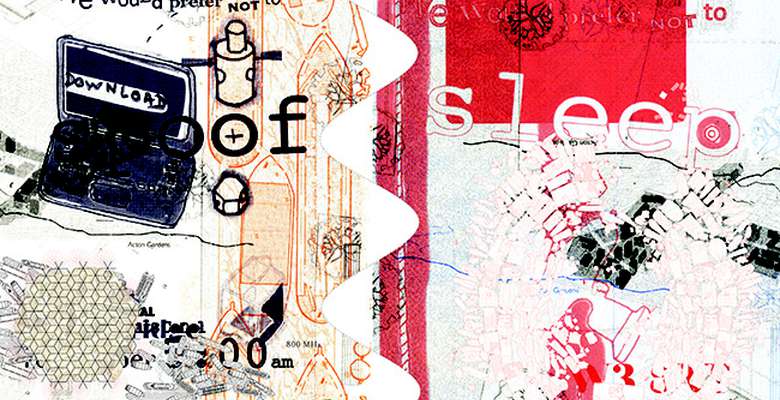
What if the future of architecture was based on a paradox?
Architecture could be based on collective production in order to be unproductive and become a high performance vehicle, merging communication infrastructure and public spaces.
Architecture could celebrate this paradox and target the two forces that have bearing on the public and private spaces of the city (extreme housing speculation and state-run digital communication surveillance). Through an excess of collective production, using a technique known as spoofing, the city's 24/7 productive mode can be forced into a sleep mode.
Architectural collective production could allow for temporary public spaces to emerge sheltering collective activities where the notion of care is essential. For sleep is one of the few remaining experiences where we abandon ourselves to the care of others.
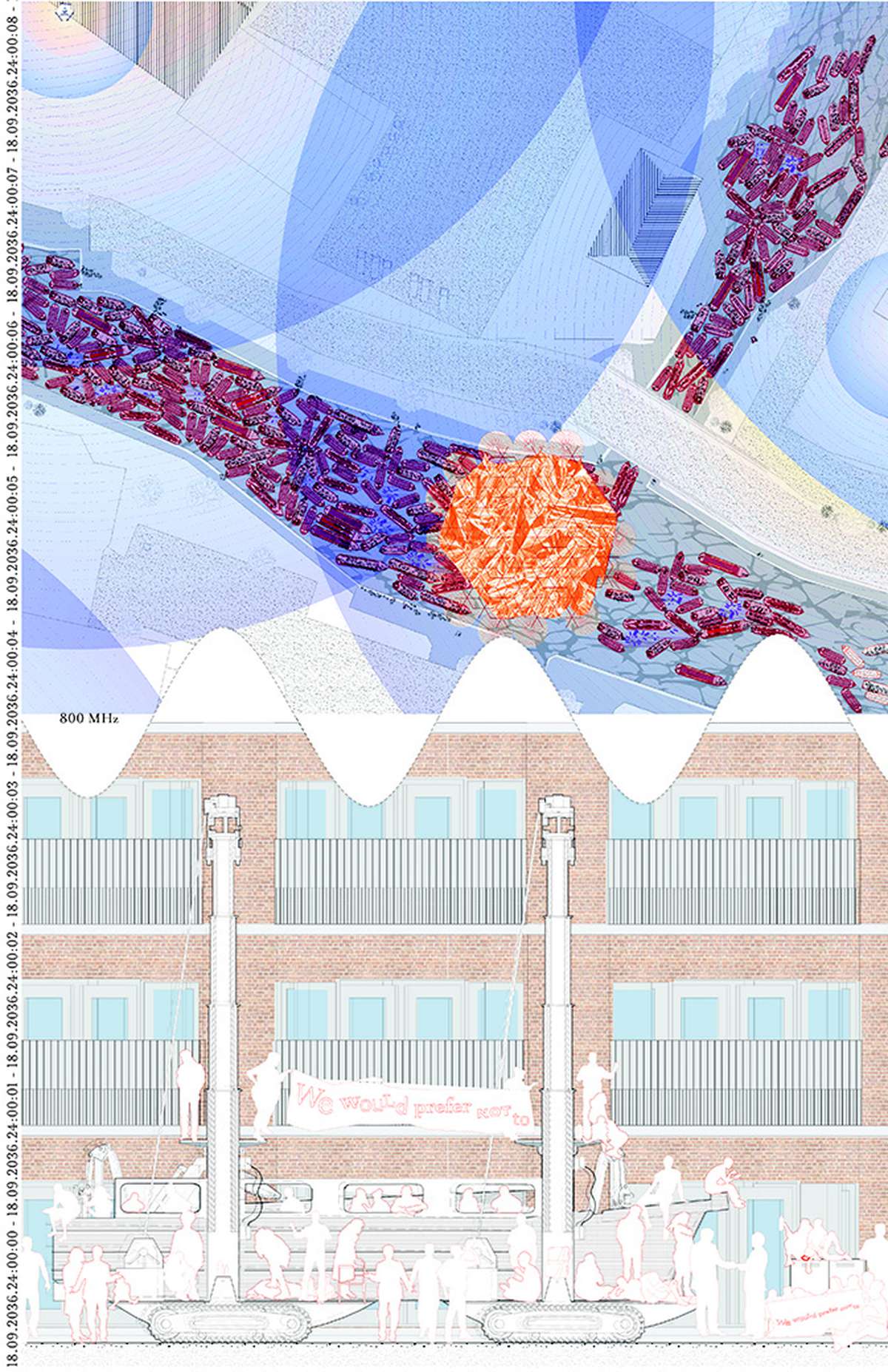
meet by the Grand Union Canal / gather the tools on narrow boats to go sleep and spoof in London.
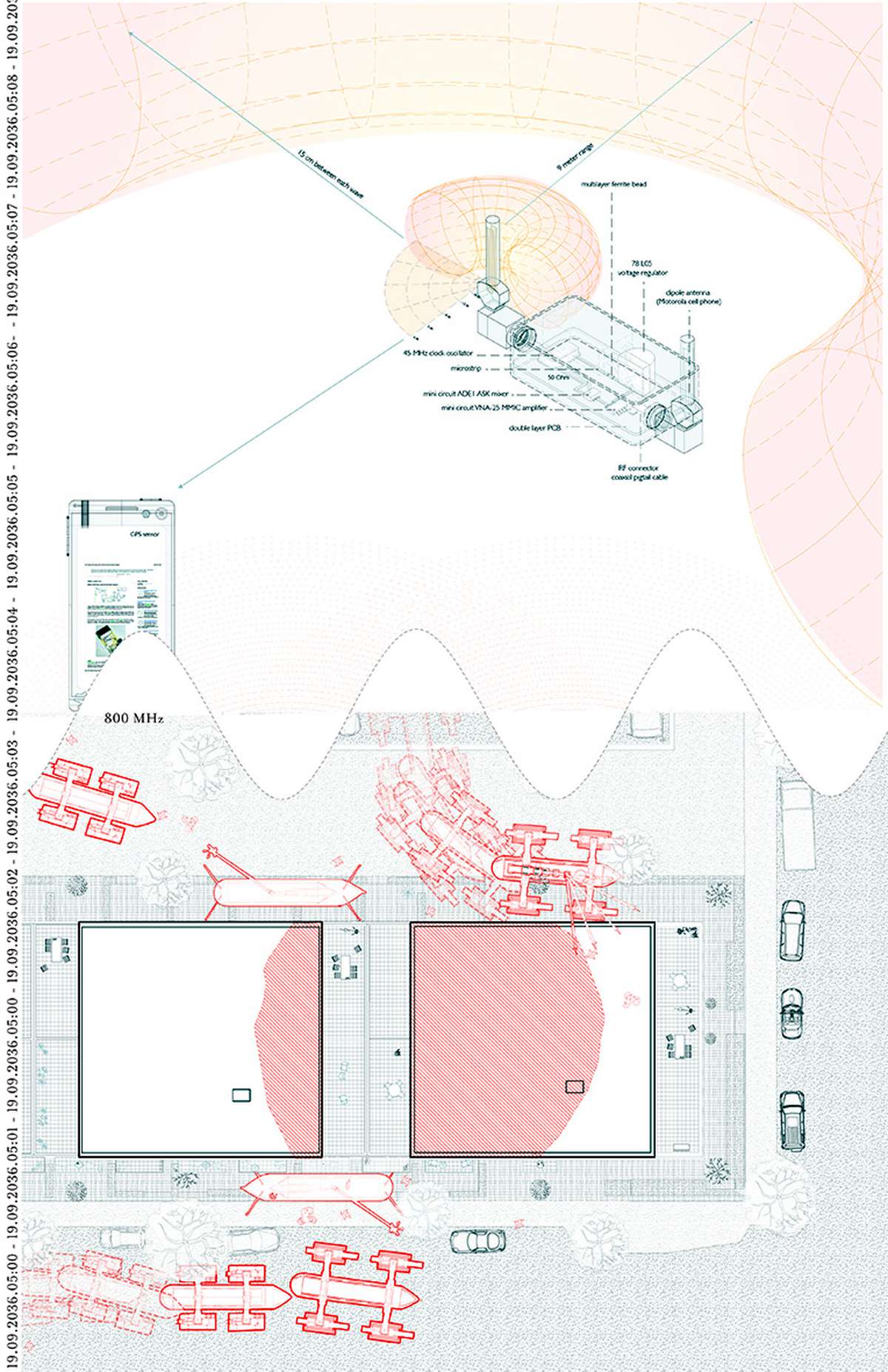
make your own jammer (spoof) / start occupying the roofs of the luxury flats that have replacing social housing estates
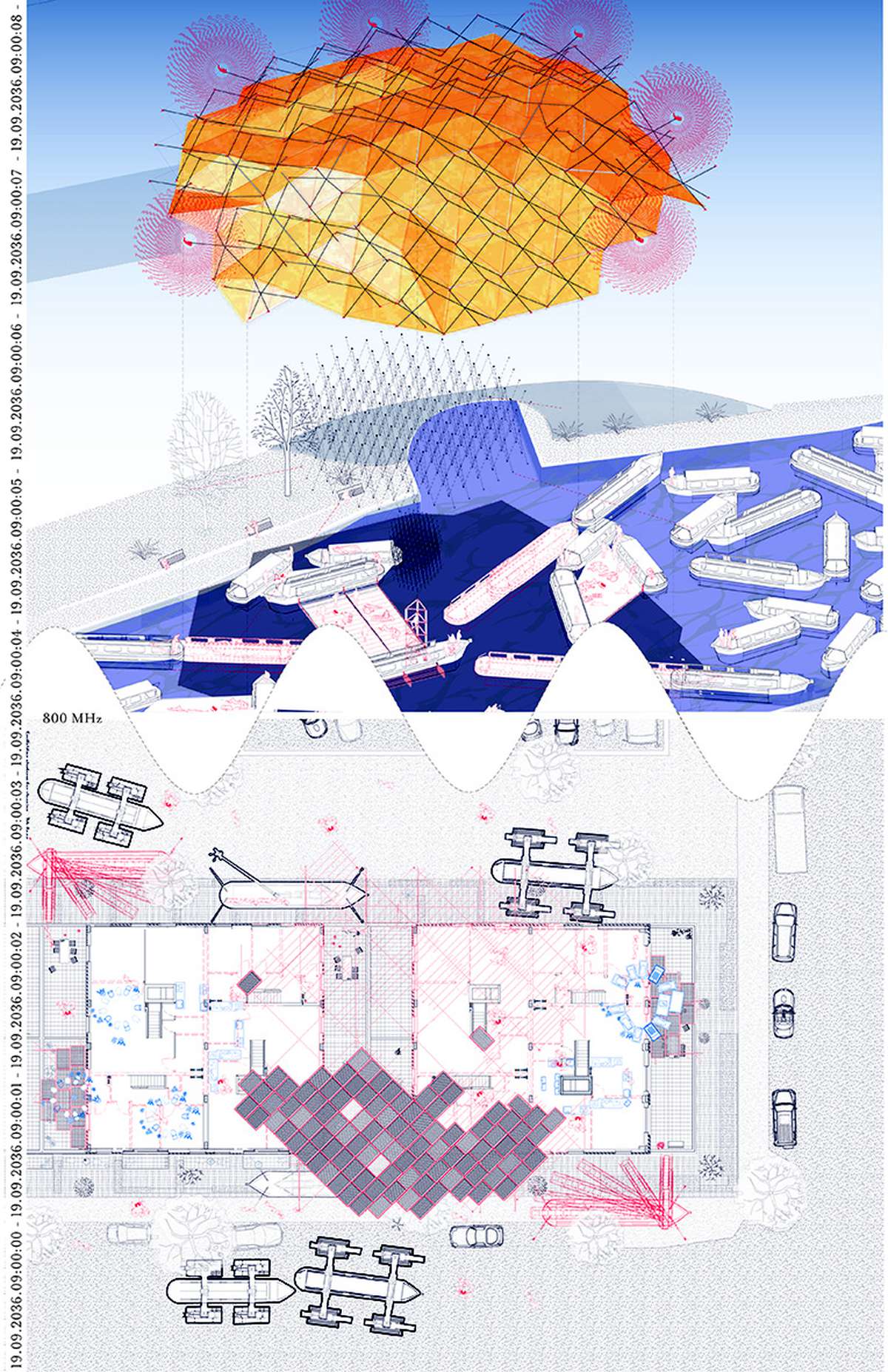
deploy the spoofing shield / reorganise the luxury flat for communal use
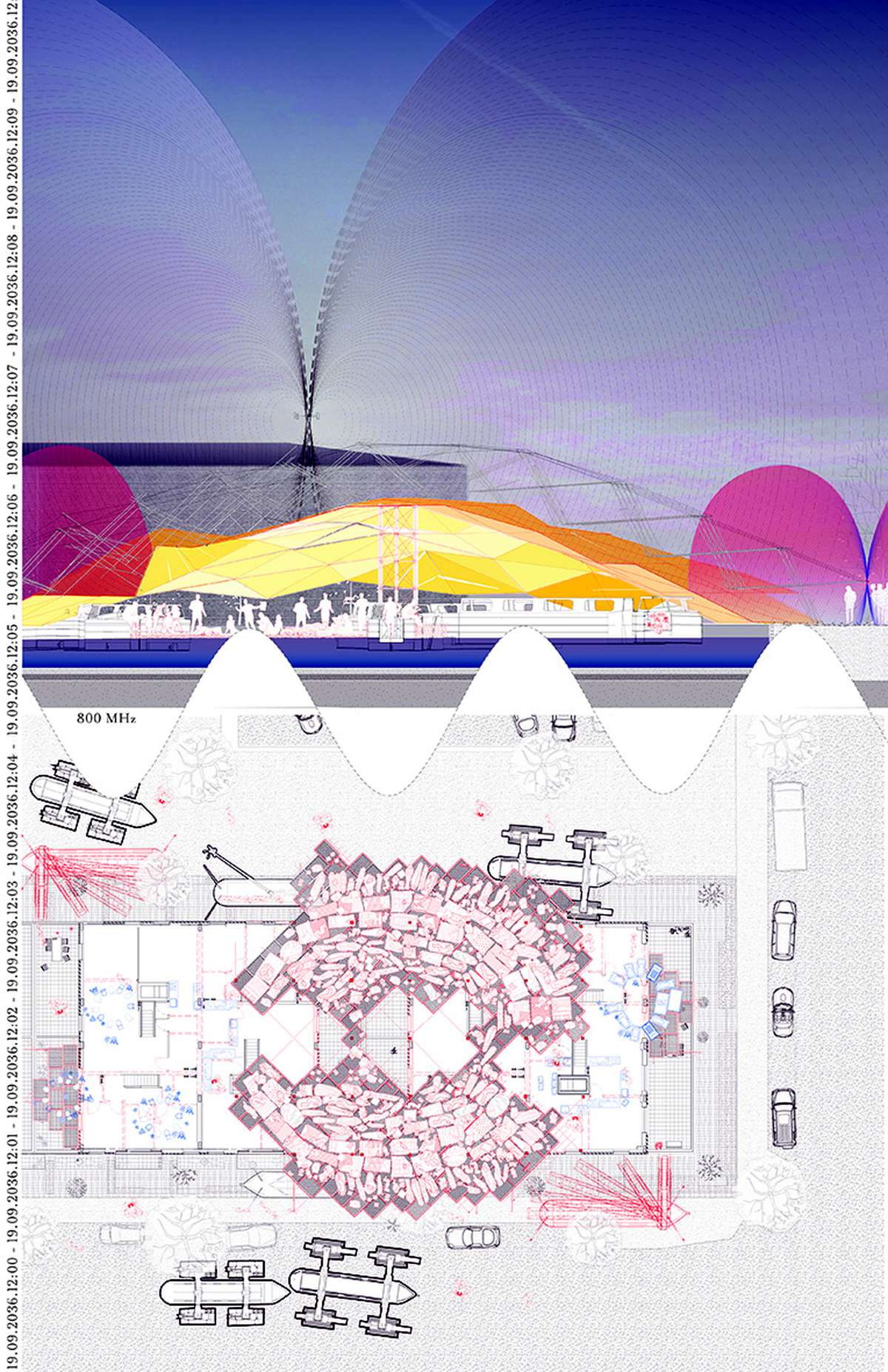
enjoy the digital communication black out / have a nap
We would prefer not to
We would prefer not to

What if the future of architecture was based on a paradox?
Architecture could be based on collective production in order to be unproductive and become a high performance vehicle, merging communication infrastructure and public spaces.
Architecture could celebrate this paradox and target the two forces that have bearing on the public and private spaces of the city (extreme housing speculation and state-run digital communication surveillance). Through an excess of collective production, using a technique known as spoofing, the city's 24/7 productive mode can be forced into a sleep mode.
Architectural collective production could allow for temporary public spaces to emerge sheltering collective activities where the notion of care is essential. For sleep is one of the few remaining experiences where we abandon ourselves to the care of others.
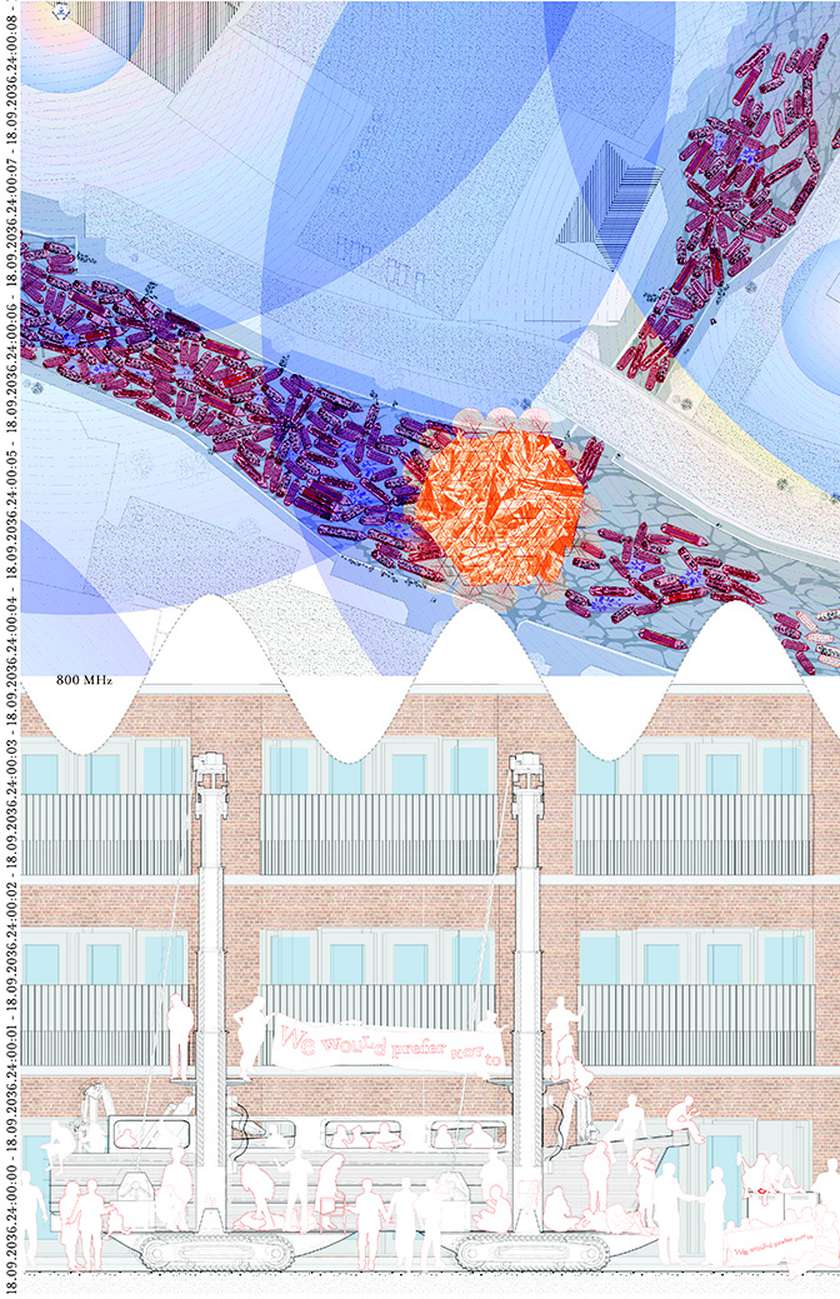
meet by the Grand Union Canal / gather the tools on narrow boats to go sleep and spoof in London.
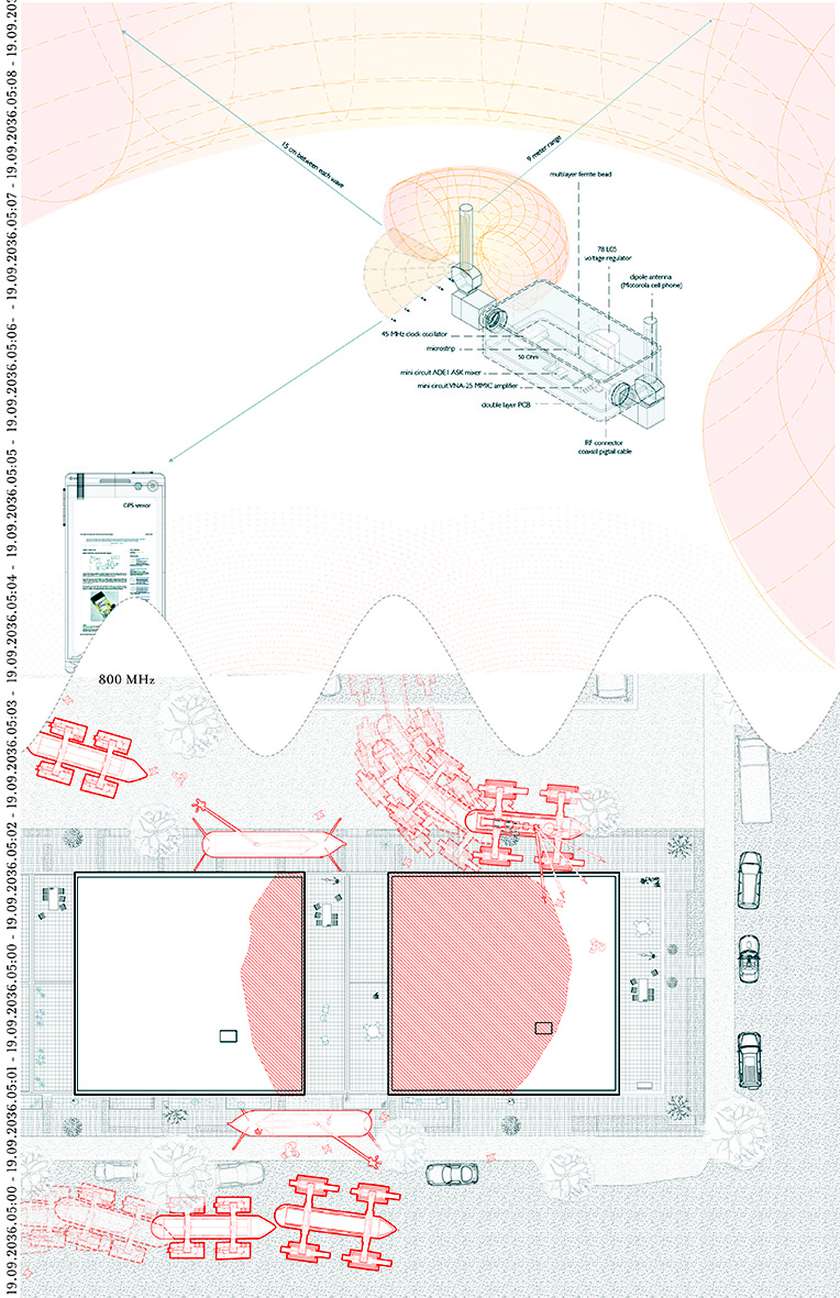
make your own jammer (spoof) / start occupying the roofs of the luxury flats that have replacing social housing estates
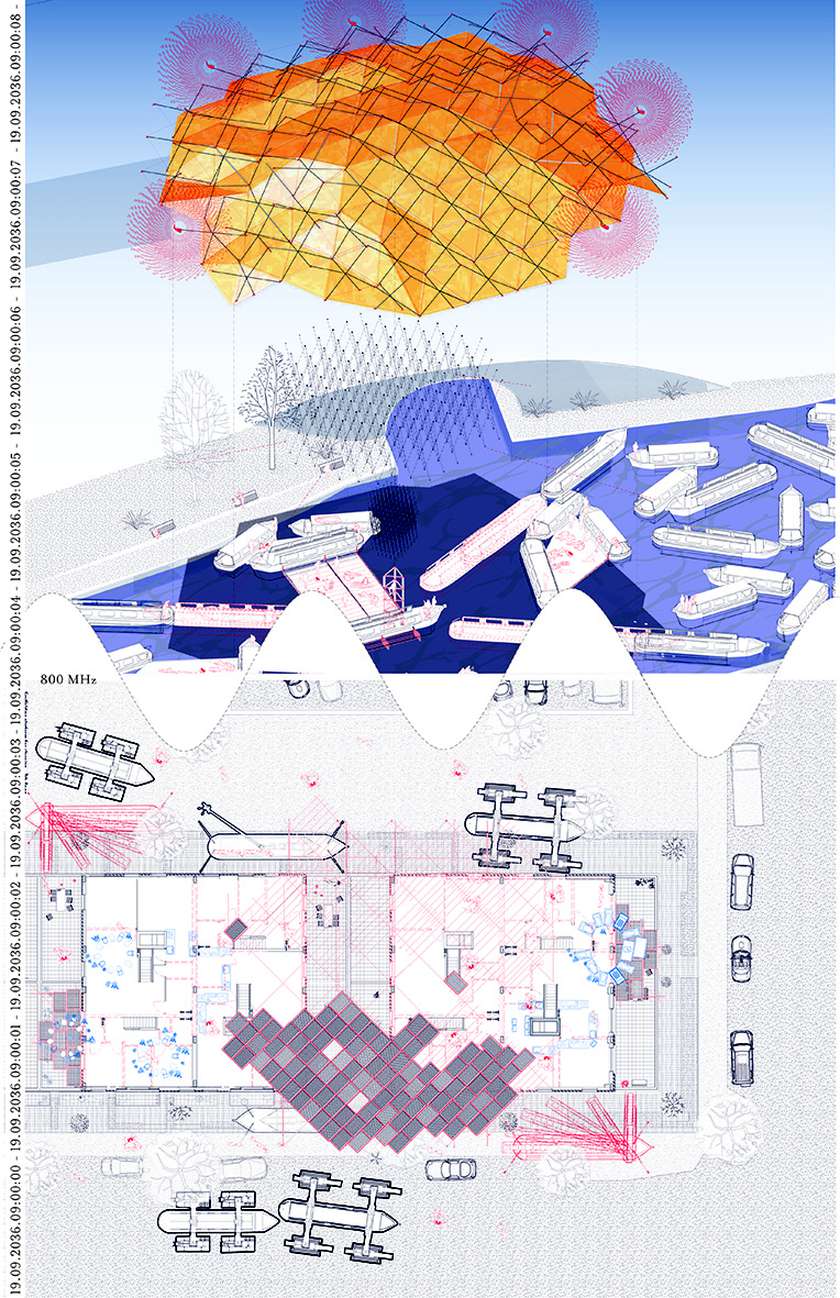
deploy the spoofing shield / reorganise the luxury flat for communal use
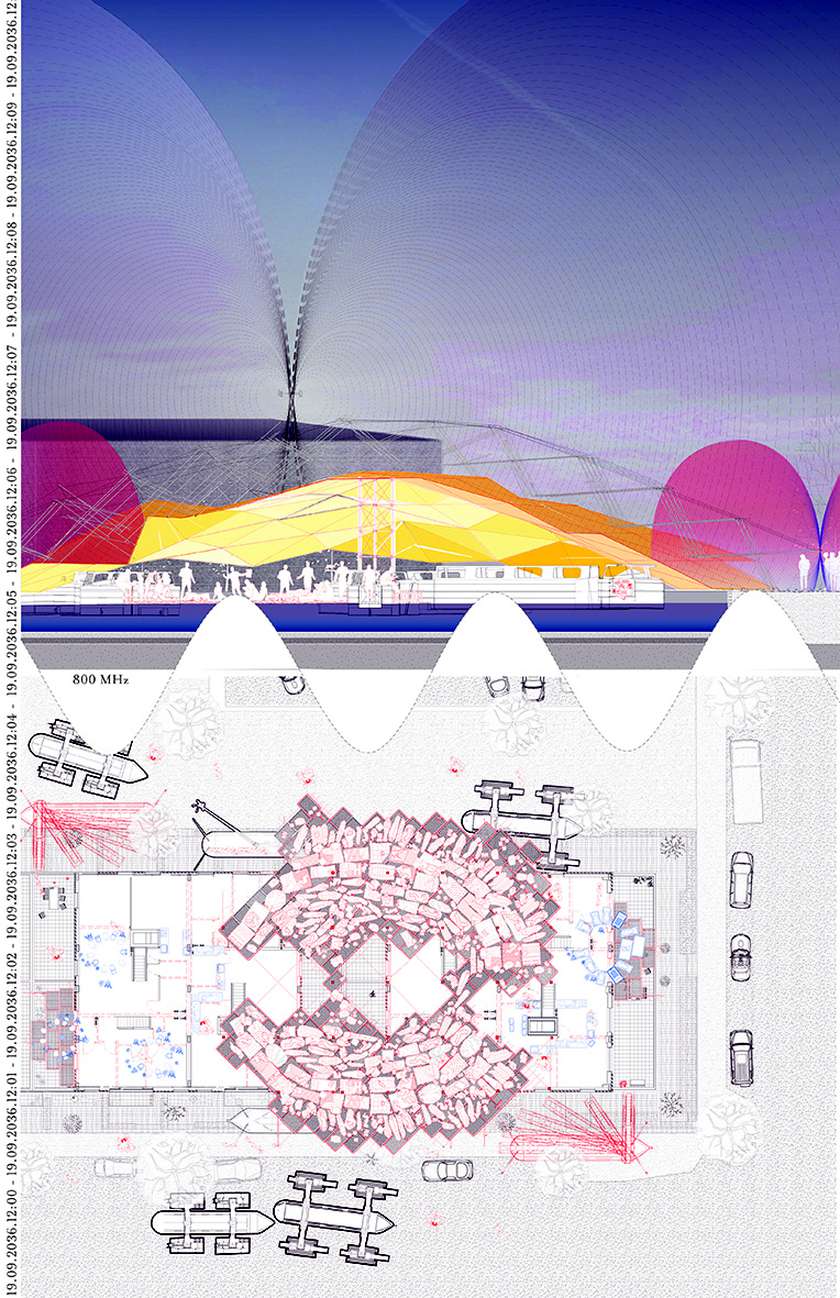
enjoy the digital communication black out / have a nap